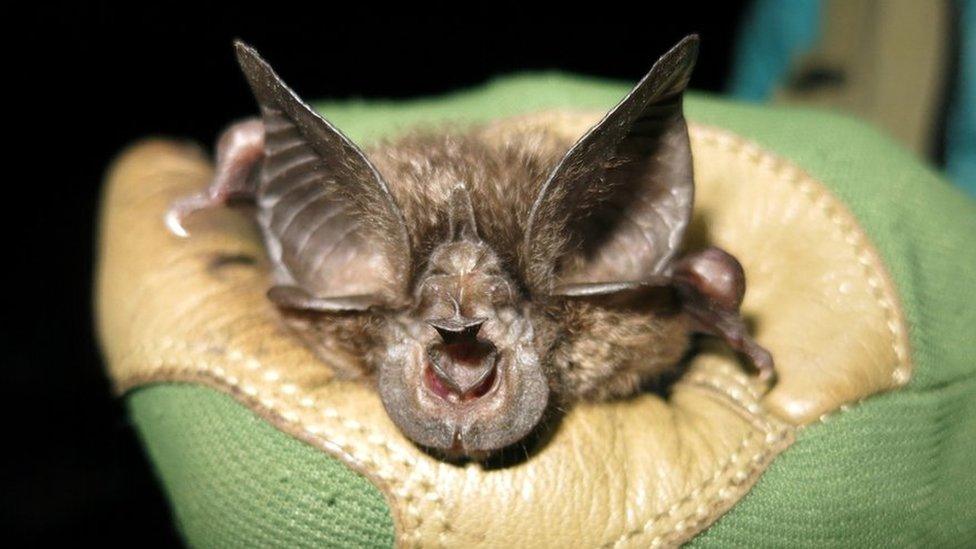Lost bat not seen in 40 years found in Rwandan rainforest!
- Published
- comments

A critically endangered bat has ben spotted in Rwanda for the first time in 40 years!
It's called a Hill's Horseshoe Bat, and it was found in Rwanda's Nyungwe Forest, a dense rainforest that is also home to endangered mountain gorillas.
Conservationists - whose job it is to protect wildlife - were over the moon to find the bat, as they were worried it had already gone extinct.
Jon Flanders, director for Bat Conservation International (BCI), said rediscovering the lost species "was incredible".
"It's astonishing to think that we're the first people to see this bat in so long," he continued.
Mountain gorillas like this one can also be found in the national park where the bats were located
The bat was actually found in 2019, on a 10-day long expedition through the forest.
However it's taken them this long to fully confirm that it is in fact a Hill's Horseshoe.
They knew it was special as soon a they found it, however: "We knew immediately that the bat we had captured was unusual and remarkable," BCI's chief scientist Winifred Frick said.
"The facial features were exaggerated to the point of comical."
An organisation called the International Union for Conservation of Nature (IUCN's) has a Red List that breaks down how endangered all animals in the world are.
According to them, around 40 percent of the 1,321 species of bat on their list are now classified as endangered.
This list puts animals into one of nine different categories
They are: Not Evaluated, Data Deficient, Least Concern, Near Threatened, Vulnerable, Endangered, Critically Endangered, Extinct in the Wild and Extinct
The first two categories include animals that are hard for the IUCN to assess
Then from Vulnerable to Extinct, the categories show how big an animal's population is, or if it's declining rapidly
Jon Flanders said that they now want to do all they can to save the once lost species from disappearing again.
"Now our real work begins to figure out how to protect this species long into the future," he said.
- Published9 March 2022
- Published9 March 2022
- Published9 March 2022
